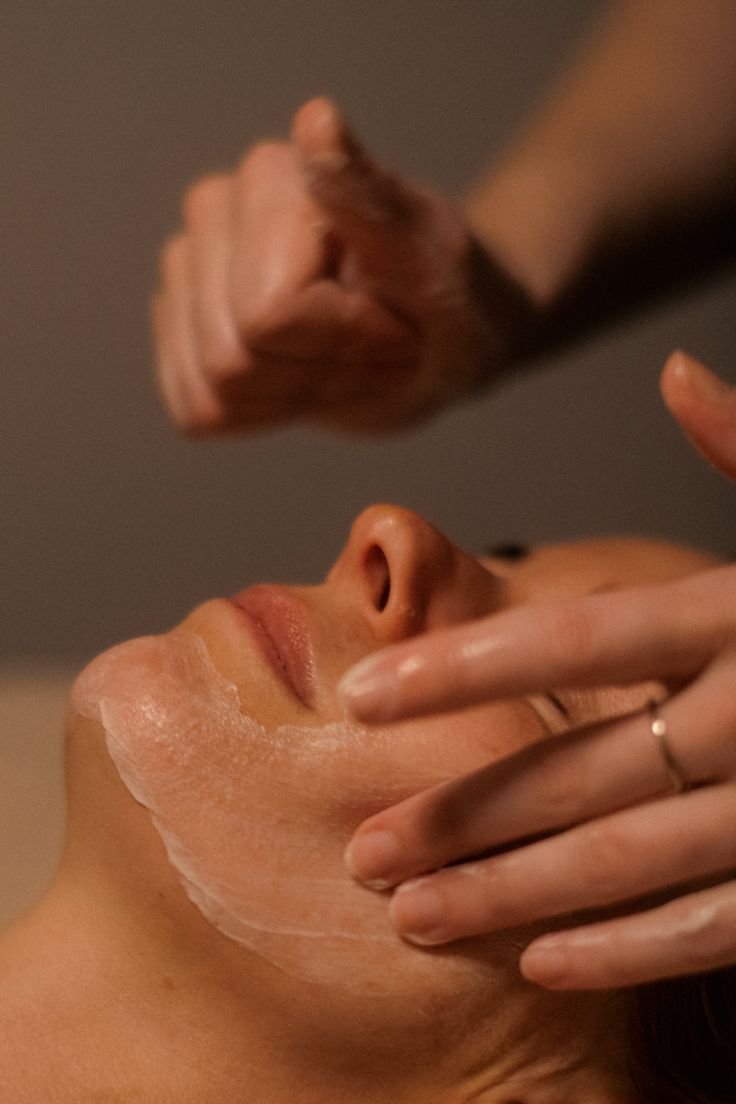A digital detox offers a much-needed pause from the constant barrage of information, allowing us to reflect, rejuvenate, and reconnect with the world beyond the confines of our devices. By stepping away from screens, we create space to engage in meaningful conversations, immerse ourselves in nature, and nurture the relationships that truly matter.
Embracing a break from technology is not about abandoning progress but rather finding balance in a digitally saturated world. It is a reminder to prioritize our well-being, cultivate mindfulness, and savor the simple pleasures that often go unnoticed in the whirlwind of modern life.
So, let us power down our devices, lift our heads from our screens, and embark on a journey of self-discovery and renewal. It's time to disconnect to reconnect—to ourselves, others, and the world around us.
In this article, we discuss mindful strategies to approach a digital detox so you can emerge with helpful tools to improve your relationship with technology—navigating a connected world with greater awareness and intention.
No. 1
Summary: 10 Facts About Embracing a Digital Detox for Mindful Living
Quality of life - Digital detox refers to a period where you refrain from using digital devices to reduce stress and improve your quality of life.
Mental health - Excessive digital consumption can lead to mental and physical health issues, including stress, anxiety, and disrupted sleep patterns.
Goals - Setting realistic goals is a crucial first step in a successful digital detox, focusing on measurable and achievable targets.
Personalized plan - Create a personalized digital detox plan to identify specific digital habits to change and implement strategies to address them.
Techniques - Reduce screen time using app limiters, establish tech-free zones, and engage in screen-free activities.
Non-digital activities - Integrate non-digital activities into your daily routines to enhance your physical health, mental well-being, and interpersonal relationships.
Workplace - Implementing digital detox strategies in your workplace can boost productivity and reduce job-related stress.
Home - At home, set clear boundaries for device use to improve family interactions and sleep quality.
Relationships - A digital detox can strengthen your social relationships by encouraging more meaningful and present interactions.
Practice - Regularly practicing digital detoxes leads to long-term benefits, including improved mental health, better focus, and stronger personal connections.
No. 2
Understanding the Impact of Digital Overload
Digital overload has emerged as a critical challenge in modern society. It engulfs individuals with an incessant stream of data, disrupting mental peace and productivity. The barrage of notifications, emails, and social media updates creates a persistent cognitive load, reducing our capacity for deep thought and meaningful engagement.
The cognitive effects of digital saturation are profound. Shortened attention spans and diminished memory retention characterize the brains of those frequently toggling between virtual tasks. A significant fallout of this condition is the reduced ability to concentrate on single tasks, leading to a scattered focus and decreased productivity.
Psychologically, this overload triggers stress, anxiety, and a sense of isolation. Despite the irony of a world more connected than ever, many feel lonelier, trapped in a cycle of virtual interactions that lack the warmth of human contact. The introduction of virtual meeting spaces, while facilitating remote connections, further blurs the line between work and personal life, exacerbating feelings of being constantly "on."
Mitigation strategies are crucial for reclaiming mental space and well-being. Establishing boundaries for digital consumption, incorporating regular digital detoxes, and fostering real-world relationships can counteract the effects of digital overload.
Mindfulness and physical activities emerge as powerful tools for disconnecting from the digital world and grounding oneself in the present.
No. 3
The Concept of Digital Detox
Digital detox refers to a period of time during which an individual abstains from using digital devices such as smartphones, computers, and social media platforms. This practice aims to reduce stress, improve interpersonal relationships, and increase physical activity by encouraging individuals to engage in the real world rather than the digital one.
Initiating a digital detox can be a deliberate decision to reclaim control over one's digital consumption. It involves setting clear boundaries around device use, such as specific times of day or particular settings in which digital devices are to be avoided. This discipline helps individuals become more mindful of their digital habits and promotes a healthier balance between online and offline activities.
The benefits of a digital detox extend beyond mere reduction of screen time. Participants often report improved sleep quality, enhanced concentration, and a greater sense of presence in their interactions with others. By disconnecting from the digital world, individuals allow their minds to reset, fostering creativity and reducing the cognitive load associated with constant information processing.
To successfully implement a digital detox, individuals may seek support from tools and communities that promote digital well-being. Apps that track screen time, block distracting sites, or limit app usage can be effective in managing digital consumption.
Moreover, joining groups or challenges focused on digital detoxing can provide motivation and accountability, making the journey toward a balanced digital life more attainable and enjoyable.
No. 4
Strategies for a Successful Digital Detox
Achieving a successful digital detox requires thoughtful planning and commitment. It's about more than just spending less time on digital devices; it involves re-evaluating our relationship with technology to foster a healthier, more balanced lifestyle.
By adopting strategic approaches, you can navigate the challenges of disconnecting in a hyper-connected world, leading to significant improvements in your well-being and productivity.
No. 5
Setting Realistic Goals
Embarking on a digital detox begins with setting achievable goals tailored to your individual needs and lifestyle. It's crucial to identify specific aspects of digital usage to reduce such as social media browsing or checking emails obsessively.
Your goals should be measurable and time-bound, like limiting social media use to 30 minutes a day for a month. This clarity helps in monitoring progress and maintaining motivation throughout the detox process.
A common pitfall in goal setting is aiming too high, which can lead to frustration and abandonment of the detox effort. Starting with small, manageable changes allows for gradual adaptation, making the transition smoother and more sustainable in the long term.
Celebrate small victories along the way to boost morale and reinforce your commitment to a digitally balanced life.
No. 6
A Personalized Plan
A personalized plan is essential for a successful digital detox. This plan should reflect your personal goals and the specific digital habits you aim to alter.
A digital detox plan might include scheduling specific times to check emails or social media, designating tech-free zones in the home, or committing to digital-free meals. The plan should also identify alternative activities to fill your time usually spent on digital devices, such as reading, exercising, or spending time with loved ones.
Flexibility in the plan is important to accommodate unexpected challenges or changes in routine. Regularly reviewing and adjusting the plan ensures it remains aligned with your personal goals and life circumstances. This adaptability helps in overcoming obstacles and sustaining the detox over time.
No. 7
Techniques to Reduce Screen Time
Implementing techniques to reduce screen time is a cornerstone of a digital detox.
One effective strategy is using app limiters or digital well-being features on devices that track and restrict usage. Another technique is the "20-20-20 rule" to reduce eye strain and break the continuous screen gaze: every 20 minutes, look at something 20 feet away for at least 20 seconds.
Establishing routines that do not involve screens, such as a morning routine that excludes phone checking, can significantly reduce your overall screen time. These routines help create a natural rhythm for the day that prioritizes non-digital activities, making it easier for you to disconnect and engage in more fulfilling pursuits.
No. 8
Finding Balance: Integrating Non-Digital Activities
Integrating non-digital activities into your daily life is crucial for finding balance and enhancing the quality of the digital detox.
Activities that promote physical health, such as yoga or hiking, alongside those that foster mental well-being, like meditation or journaling, provide valuable alternatives to screen time. These activities fill the void caused by reduced digital engagement while contributing to overall health and happiness.
Building a support system of friends and family who understand and respect your detox journey can greatly enhance its success. Participating in group activities or hobbies that do not involve digital devices creates opportunities for meaningful connections and experiences, further enriching the detox process and making the transition to a less digitally dependent lifestyle more rewarding and sustainable.
No. 9
Implementing Digital Detox in Various Aspects of Life
Implementing a digital detox across different facets of your life enhances its effectiveness, promoting a holistic approach to reducing digital dependency.
By integrating digital detox strategies into your workplace, home, and social relationships, you can experience a more profound sense of balance and well-being. This comprehensive approach minimizes the negative impacts of digital overload and enriches the quality of your personal and professional life.
No. 10
In the Workplace
Adopting digital detox strategies in your workplace can significantly boost productivity and reduce job-related stress.
One approach is to allocate specific times for checking emails and messages, thus avoiding constant interruptions. Encouraging regular breaks away from screens allows employees to recharge, leading to improved concentration and performance.
Another strategy involves promoting face-to-face meetings over virtual ones when possible. This change fosters better communication and teamwork, reducing your reliance on digital communication tools. Creating tech-free zones in common areas encourages social interaction among colleagues, further enhancing a positive work environment.
No. 11
At Home
Implementing digital detox at home involves setting clear boundaries for device use.
Designating tech-free times, especially during meals and before bedtime, can improve your sleep quality and family interactions. Encouraging activities that don't involve screens like products designed to reduce stressors such as board games or outdoor activities, strengthens family bonds and personal well-being.
Creating a designated charging station outside of bedrooms encourages leaving devices overnight, reducing the temptation to use them before sleep. This simple change can significantly improve sleep hygiene and overall relaxation, contributing to a healthier home environment.
No. 12
Social Relationships
A digital detox can profoundly impact your social relationships by encouraging more meaningful and present interactions.
Prioritize in-person engagements over digital communication to strengthen connections and foster deeper conversations. Setting aside phones during social gatherings allows for undivided attention and richer experiences.
Encouraging a culture of presence among your friends and family, where digital devices are set aside in favor of real-world interactions, can enhance the quality of your relationships. Sharing experiences and hobbies that do not involve screens can lead to discovering new interests and ways to connect, deepening bonds, and creating lasting memories.
Takeaways
The journey towards a balanced digital life is both challenging and rewarding. By understanding the impact of digital overload and implementing strategies for a successful digital detox, you can reclaim control over your digital consumption. This process improves your mental and physical health while enhancing the quality of your interpersonal relationships and productivity.
Adopting a holistic approach to digital detox, by integrating it into various aspects of your life such as the workplace, home, and social interactions, provides a comprehensive solution to the pervasive issue of digital dependency. It encourages a mindful use of technology, where digital tools are used to enhance, not detract from your quality of life.
Ultimately, the goal is not to eliminate digital technology from our lives but to find a harmonious balance that respects our human needs for connection, rest, and engagement in the physical world. Embracing this balanced approach leads to a more fulfilling and connected life, free from the chains of digital overload.
FAQ
What are the symptoms that I might need a digital detox?
Signs that you might need a digital detox include feeling anxious or stressed when you can't access your digital devices, spending more time online than with people in real life, experiencing physical discomfort such as eye strain or headaches from screen time, and noticing a significant impact on your sleep quality.
If you find that digital interactions are taking precedence over real-life connections, or if your productivity is suffering due to excessive digital consumption, it may be time to consider a detox. Identifying these signs early can help prevent the more severe consequences of digital overload.
How can I start a digital detox if I rely on technology for work?
Starting a digital detox while relying on technology for work involves setting clear boundaries between work and personal digital use. Allocate specific times for checking emails and completing digital tasks, and establish tech-free periods during your day, especially during breaks and after work hours.
Use productivity tools that limit non-essential internet use during work hours to focus on tasks without distractions. Communicating your detox plan to colleagues and setting expectations for response times can also help in balancing your digital consumption while maintaining professional responsibilities.
Can a digital detox improve my relationships? How?
Yes, a digital detox can significantly improve your relationships by encouraging more present and meaningful interactions. By reducing screen time, you can dedicate more attention and energy to face-to-face conversations, leading to deeper connections and understanding.
A digital detox helps in setting a precedent for quality time, where distractions are minimized, and the focus is on the people you are with. This shift away from screens allows for the exploration of shared interests and activities that can strengthen bonds and create lasting memories together.
Are there long-term benefits to regularly practicing digital detoxes?
Regularly practicing digital detoxes offers long-term benefits, including improved mental health, enhanced focus, better sleep patterns, and stronger personal relationships. Over time, you can learn to manage your digital consumption more effectively, developing healthier habits that prioritize your well-being and real-world interactions.
Consistent practice can lead to a more balanced lifestyle, where technology serves as a tool for enhancement rather than a source of constant distraction. Additionally, regular digital detoxes can foster a greater appreciation for the non-digital aspects of life, encouraging a more active, engaged, and fulfilling existence.












































































































































